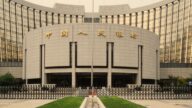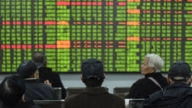【新唐人2014年07月25日讯】持续低迷的中国房地产市场,让外界日益担忧中国的经济。日前,中共总理李克强在一次内部谈话中说,中国的经济问题就是房地产经济问题。为解决这些问题,李克强对大陆房地产开出了4个药方。那么,这些药方对救治房市有用吗?而摇摇欲坠的房市会砸倒中国的经济吗?请看专家的分析。
大陆媒体《赢商网》7月21号报导,李克强在召集专家召开紧急协商会议之后,发表了《李克强总理对中国房地产对症下药开出的四个药方》。
在文章中,李克强承认“中国的经济基本上就是房地产经济,中国的经济问题基本上就是房地产经济问题”。
为解决问题,李克强开出了四个药方:严控贷款额度,切断开发房地产的资金来源﹔向开发商征收增值税﹔强迫官员等购房群体做不动产登记,以及征收房产税。
美国南卡罗莱纳大学艾肯商学院教授谢田:“李克强政府对付中国房地产问题的4个药方,比如第一个,像前一段时间也已经对贷款出现了一些收紧,但后来又慢慢的放松了。现在,中共中央政府在向各地地方政府要求加大支出,用大量基建的方式向房地产市场和基本建设类市场投入资金。所以,我看不出有什么前景。”
美国“南卡罗莱纳大学艾肯商学院”教授谢田表示,中共实际上做法是互相矛盾的,一方面想控制资金的投入,另一方面,为了维持经济,又不得不继续投入。
资料显示,中国房地产经济占到经济总量GDP的6.6%和15%的投资,与房地产相关联的的行业达到60个。中国金融机构在房地产领域的贷款(包括开发商贷款、土地贷款和个人住房贷款)也已经达到几十万亿。
中国国家信息中心经济预测部主任祝宝良曾对外公开表示,中国60%的制造业与房地产有关,所有的融资,包括银行贷款、地方政府融资平台、信托,60%与房地产有关联,如果房地产业出现大问题,对经济影响相当大。
今年以来,大陆楼市已呈现“寒冬”景象。 2月下旬,杭州引发的楼盘“降价潮”席卷全中国﹔在武汉相城区的“西湖君庭”,甚至打出6折优惠﹔北京则推出“零首付”楼盘。
中共国家统计局7月18号公布中国70座中大城市的房价指数,不仅二、三线城市的楼市价格持续下跌,一线城市的价格也连续两个月出现下跌。
在房价持续走低的形势下,很多地方政府开始取消限购,而限价、限贷政策也在松动。
不过,中国的新建建筑的总数量同去年同期相比,却继续不断上升,五月与六月的新增比率分别为5.35%和4.05%。
房地产价格持续下跌,为何还继续投资房地产行业?
大陆金融师任中道:“因为不建,地方政府不出让土地就没有钱去还债,房地产商不拿地,就没有把用地作为抵押去贷款,或者是去发行信托、理财产品等,所以,他们为了把那些钱回笼,还是会建房子,现在已经成了一个恶性的循环。”
大陆金融师任中道表示,由于房地产占中国整个的经济GDP的比重很高,一旦出问题,不仅会冲击金融系统、与之相关的上下游行业,如建材、建筑等都会受到影响。
另外,因揭发中国上市公司会计造假行为,而闻名的美国“浑水公司”创始人卡森•布洛克认为,中国正面临“巨大的信贷和资产泡沫”,大量贷款进入非生产性资产领域,将引发高额坏账风险。他表示,一旦房地产泡沫破裂,中国GDP最高将缩水25%,GDP增长率将会跌到2%。
大陆经济学家马光远在个人博客发文说,现在房地产泡沫很大,不仅无力刺破,更重要的是,一旦刺破,无异于中国经济的自杀。他表示,中国房地产投资占到GDP15%以上,中国经济已经完全沦为房地产经济,房地产一旦出大问题,中国经济必然崩溃。
采访编辑/易如 后制/舒灿
The Chinese real estate market remains in the doldrums,
and the world is increasingly worried about China’s economy.
Recently, Chinese Communist Party (CCP) Premier Li Keqiang
said in an internal conversation that China’s economic
problem is the real estate economy.
In order to solve the problem, Li Keqiang issued four key
remedial measures to recover Mainland real estate.
So, are these prescriptions for treating
the housing market useful?
Will the crumbling housing market induce the collapse
of China’s economy?
Let’s see experts’ analysis.
On July 21, Mainland media outlet Win Business Network
reported that Li Keqiang published the article “Premier Li
Keqiang Issued Four Prescriptions Ror Remedying China’s
Real Estate Issues,” after an emergency consultative meeting.
In the article, Li admitted that, “China’s economy is
basically the real estate economy,
and China’s economic problems are basically
real estate economic problems."
Li Keqiang issued four prescriptions to deal with real estate
problems – strictly controlling loans to developers
and cutting off funding sources for the development
of real estate;
imposing value-added tax on developers;
forcing the recording of properties bought and owned
by officials; as well as launching property tax.
University of South Carolina Aiken School of Business
Professor Frank Xie in the US:
“Li Keqiang gave four prescriptions to deal
with four real estate issues.
Recently the government also tightened lending on property
developers, but then standards were slowly relaxed.
Currently the CCP Central government required local
governments to increase expenditure by investing
in infrastructure and real estate development.
So I do not see any prospects in the four prescriptions."
Professor Frank Xie said the CCP’s numerous measures
contradict each other.
On the one hand, they want to constrain investment;
on the other hand, in order to maintain economic
development, they have to continue to boost investment.
Statistics show that China’s real estate industry accounts
for 6.6 percent and 15 percent of the total GDP
and investment, respectively.
There are 60 industries associated
with the real estate industry.
The total scale of the real estate loans (including loans
to developers, land loans and personal housing loans)
offered by Chinese financial institutions has reached
tens of trillions.
Zhu Baoliang is the Director of Economic Forecasting
Department of China State Information Center.
He publicly stated that 60 percent of China’s manufacturing
activities were related to the real estate industry.
60 percent of all financing activities including bank loans
as well as local government financing platforms and trusts,
are associated with the real estate industry.
If a big problem is exposed in the real estate field,
then the economy will be considerably impacted.
This year, the Mainland property market has shown signs
of bleakness.
In late February, real estate “price cuts" triggered
in Hangzhou are sweeping across China.
The property development project, “West Lake Chamber"
in Xiangcheng District of Wuhan City even hit a 60 percent
discount whereas Beijing launched “zero down payment"
on properties.
On July 18, the CCP National Bureau of Statistics
announced the housing price index of 70 Chinese cities.
The index shows that not only do property prices
in the second and third tier cities continue to fall,
but also values in the first-tier cities fell
for two consecutive months.
Under the conditions of the continued property market
decline, many local governments began to abandon
the purchase limit and have loosened property price limit
and credit limit policies.
However, compared to last year, the total number of China’s
new buildings continue to rise, and the new building
increases with rates of 5.35 percent and 4.05 percent
in May and June, respectively.
Real estate prices continue to fall, but why do investments
continue to flow into the real estate industry?
Mainland finance analyst Ren Zhongdao:
“Without constructing new buildings,
the local governments do not sell land,
and then they have no money to pay debts.
If the real estate developers do not buy land,
then they have no land to use as loan collateral
or issue trusts and other financial products.
Therefore, in order to return the money,
they still have to construct buildings.
Now this has become a vicious cycle."
Ren Zhongdao said that as the real estate field accounts
for a high proportion of the Chinese GDP, once problems
break out, not only will the financial system be impacted,
but also all construction-related industries will be hit as well.
The United States-based ‘Muddy Waters’ company founder
Carson Block is famous for revealing accounting fraud
of publicly listed Chinese companies.
He believes that China is facing “huge credit and asset
bubbles," and a large number of loans flowing into the field
of non-productive assets will lead to a high credit risk.
He believes that once the real estate bubble bursts,
the Chinese GDP will shrink up to 25 percent
and GDP growth will fall by 2 percent.
Mainland economist Ma Guangyuan
commented in his personal blog post that
now the real estate bubble is significantly large.
It is unable to be pierced.
More importantly, once punctured, it is tantamount
to the suicide of the Chinese economy.
He believes that the Chinese real estate investment
accounts for more than 15 percent of GDP.
The Chinese economy has been completely dominated
by the real estate industry.
Once big problems occur in the real estate field,
the Chinese economy will inevitably collapse.
Interview & Edit/YiRu Post-Production/ShuChan

























